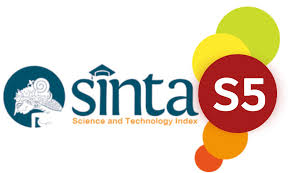Unlocking Reading Potential: Does English Comics Webtoon Impact Students’ Narrative Text Comprehension?
DOI:
https://doi.org/10.37253/iallteach.v5i2.8595Keywords:
webtoon, comics, english, readingAbstract
The purpose of this study aimed to examine the effectiveness of English comic webtoons as an instructional tool for improving reading comprehension abilities to traditional teaching methods. The study used a quasi-experimental design and a simple random sampling technique to select participants. The study included two classes: Class X-MIPA 2 was designated as the experimental group, and Class X-MIPA 1 was designated as the control group. The research involved 52 students in total. Pre- and post-tests were used to collect data, which was then statistically analyzed using the t-test procedure. The study's findings revealed a statistically significant difference in academic performance between the experimental and control groups. There was a significant improvement in the students' reading comprehension scores after the treatment was completed. The computed test statistic (t-test) was 6.44, which was greater than the critical value of 1.68. This study's findings led to the acceptance of the research hypothesis (Ha) and the rejection of the null hypothesis (Ho). The effectiveness of using English comic webtoons as an instructional medium for improving the reading comprehension skills of tenth-grade students at MAS Ulumuddin, specifically in relation to narrative texts, is highlighted in this study. This study provides important insights for teachers looking for visually appealing methods to improve reading comprehension in the classroom.The study employed a quasi-experimental design and utilized a simple random sampling technique for participant selection. reading comprehension in the classroom.
Downloads
References
Creswell, J., W. & Creswell,J.,D. (2018) Research Design: Qualitative, Quantitative, and Mixed Methods Approaches. 5th ed., SAGE Publications.
De La Cruz, Y., & Paula, M. (2023). The effects of lack of vocabulary on students’ confidence (Bachelor's thesis, La Libertad: Universidad Estatal PenÃnsula de Santa Elena, 2023.).
Erya, W. I., & Pustika, R. (2021). Students’ Perception Towards The Use Of Webtoon To Improve Reading Comprehension Skill. Journal of English Language Teaching and Learning, 2(1), 51-56. DOI: https://doi.org/10.33365/jeltl.v2i1.762
Jaya, A. (2017). Sentence patterns of narrative text English textbook in Indonesia. English Community Journal, 1(2), 69-74. DOI: https://doi.org/10.32502/ecj.v1i2.763
Kim, H. (2023). ‘I read webtoon every day!’: young adult k-pop fans’ language learning and literacies with korean webcomics. Journal of Graphic Novels and Comics, 14(1), 104-118. DOI: https://doi.org/10.1080/21504857.2022.2053557
Manuaba, I. B. K. (2017). Text-based games as potential media for improving reading behaviour in indonesia. Procedia computer science, 116, 214-221. DOI: https://doi.org/10.1016/j.procs.2017.10.041
Fauziah, S., & Nasrullah, N. (2023). Investigating the Use of Webtoon Application for Learning English Skills. JELITA, 4(2), 117-132. DOI: https://doi.org/10.56185/jelita.v4i2.148
Widiyarti, E. R., Rofi’i, A., Herdiawan, R. D., & Noermanzah, N. (2021). “I Don’t Understand English Readingâ€: Utilizing Webtoon as Edutainment Medium to Foster Students’ Reading Comprehension. Silampari Bisa: Jurnal Penelitian Pendidikan Bahasa Indonesia, Daerah, dan Asing, 4(1), 133-142. DOI: https://doi.org/10.31540/silamparibisa.v4i1.1278
Pratiwi, C., Muchtar, M., & Perangin-Angin, A. B. (2022). A Visual Semiotic Analysis On Webtoon True Beauty. International Journal of English and Applied Linguistics (IJEAL), 2(1), 41-48. DOI: 10.47709/ijeal.v2i1.1420
Dar, A., Irfan, S. A., Khan, F. U., & Rahman, Z. (2023). Reading the Visual Narrative: Webtoons as a Pathway for Literacy Development and Social Entrepreneurship. Journal of Policy Research, 9(2), 798-800. DOI: https://doi.org/10.61506/02.00017
Nastiti, A. A. (2020). An analysis of English textbook focusing on reading material to enhance students’ critical thinking in recount text and narrative text. RETAIN, 8(3), 69-79. https://ejournal.unesa.ac.id/index.php/retain/article/view/33967
Pustika, R., & Wiedarti, P. (2019). The implementation of reading instruction in EFL classroom. ETERNAL (English, Teaching, Learning, and Research Journal), 5(1), 75-87. DOI: https://doi.org/10.24252/Eternal.V51.2019.A7
Rahman, F., & Saputra, N. (2021). English as International Language Revisited: Implications on South Korea’s ELT Context. Scope: Journal of English Language Teaching, 6(1), 08-15. DOI: http://dx.doi.org/10.30998/scope.v6i1.9383
Shim, A., Yecies, B., Ren, X., & Wang, D. (2020). Cultural intermediation and the basis of trust among webtoon and webnovel communities. Information, Communication & Society, 23(6), 833-848. DOI: https://doi.org/10.1080/1369118X.2020.1751865
Yecies, B., Yang, J. J., & Lu, Y. (2020). Korean webtoons and collective innovation: expanding Europe's creative industries through competitive localization. Innovation: The European Journal of Social Science Research, 33(4), 459-473. https://doi.org/10.1080/13511610.2020.1828839




.png)






